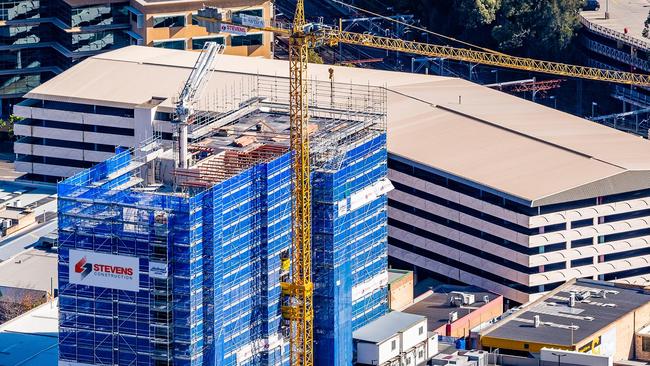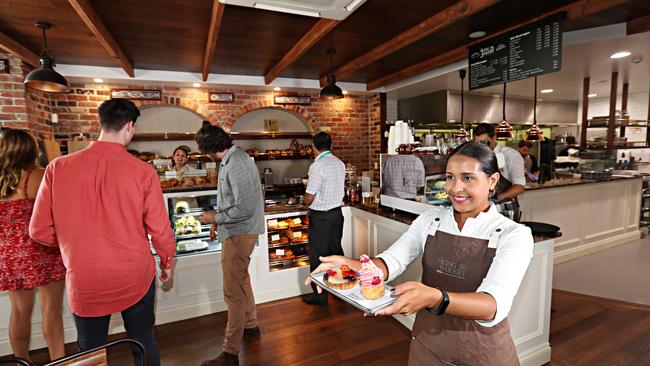Australian insolvencies hit record high in May as industry warns worse is yet to come
Company collapses have reached unprecedented levels with a record 1245 insolvencies in May, and experts warn it is just the start of a cycle of business failures.

Business
Don't miss out on the headlines from Business. Followed categories will be added to My News.
Business failures have surged to levels not seen before as deteriorating economic conditions combined with poor consumer spending and stubborn inflationary pressures, including higher operating expenses, damage the fortunes of many companies.
And insolvency experts expect the number of company failures may not slow until the Reserve Bank announces interest rate relief.
Figures from the Australian Securities & Investments Commission show there were 1245 insolvency appointments in May, a 44 per cent increase on the 866 appointments made a year ago, and 122 per cent more than 2022.
May 2024 now holds the record for the most insolvency appointments since the corporate regulator first started to publish figures in 1999. It has surpassed the previous high of 1137 set in March, which in turn broke the long-running record of 1123 in February 2012.
There were 3.37 million businesses registered in Australia in May compared to 1.13 million in 1999 and 1.88m in 2012, according to ASIC
The current financial year is all but certain to eclipse the 2010-11 financial year, which was affected by the Global Financial Crisis, to have the highest rate of external administration and controller appointments on record. That year saw 10,757 businesses go under.
Gayle Dickerson, KPMG’s national leader, turnaround and restructuring, said that there was likely to be a lag effect in insolvencies similar to what was seen during the GFC when the number did not peak until more than two years after the collapse of Lehman Brothers.
“We haven’t hit the peak yet and how long until we do remains a question, which will be driven by broad economic circumstances,” she said.
“At the moment it is very evident at the small to medium enterprise level where we are seeing the impact of cost of living, discretionary spending and inflationary pressures. There is no doubt, we’re in a tough economic cycle, and some of those pressures will start to shift up to larger companies towards the back end of the year.”
Construction had the highest number of insolvencies at 313 in May, which was also a record for the sector this cycle. Accommodation and food services insolvency appointments continued to grow at a faster rate with 177, and retail trade appointments surged 61 per cent in May to 92.
NSW Tier 2 commercial construction company Stevens Construction was among the big casualties in May after it went into voluntary administration on May 27 owing several million dollars and leaving many projects in limbo.
Brisbane-based BCN Events Group, which operated seven venues including Lumiere Culinary Studio in Newstead and King Street Bakery in Bowen Hills, entered liquidation.
Chinese variety retailer Miniso appointed Jirsch Sutherland as administrators last month after it collapsed for the second time. The administration affects 140 employees and 21 stores including Parramatta, Sydney Central, Pacific Fair in Queensland and DFO South Wharf in Melbourne.
CreditorWatch chief executive Patrick Coghlan told The Australian that its forward-looking payment default data suggested that records were likely to continue to be set each month for the rest of 2024.
“It’s hard to find an industry that hasn’t been significantly affected. You’ve got reduced discretionary spend, you’ve got inflation, which has pushed up all of their input costs. A lot of industries will struggle to increase their pricing to levels that make them profitable,” he said.

NSW and Victoria, which are home to the lion share of Australian businesses, had new highs of 535 and 314 insolvencies respectively, while Queensland had its highest number since October 2015 at 228.
Mr Coghlan said it was unclear whether cost of living relief and the stage 3 tax cuts might have an impact on insolvencies, but expected that most households would instead put those savings towards the mortgage, rent and bare necessities.
“What will start to make a difference is the first interest rate cut and confidence in a second one will give businesses confidence to invest and consumers to spend more,” he said.
Insolvency rates have surged since Covid-19 support measures and flexibility from the Australian Taxation Office were eased, with the ATO chasing more than $34bn worth of debts owed by small businesses that had been on hold.
HLB Mann Judd partner and restructuring and insolvency specialist Todd Gammel said that the involvement of the ATO was key given that many operations had not been sustainable for years and had only survived because of the initial spike in demand after the pandemic.
“The ATO has more of a responsibility now to focus on the bad actors and remove repeat offenders from the market,” he said.

“There probably is a lot of businesses that need to be washed out of the economy such as start-ups where people piled into them when the cash rate was zero, but haven’t been able to mature enough to reach profitability.”
Mr Gammel said that businesses that had a sound funding structure and were still able to make money would emerge from the current environment in better shape. He said that there were still plenty of opportunities for these businesses to lay the groundwork to benefit on the other side.
“Those that have good funding structures and advisers are still able to get access to equity to take advantage of opportunities to build and grow their business once these headwinds pass,” he said.
More Coverage
Originally published as Australian insolvencies hit record high in May as industry warns worse is yet to come





